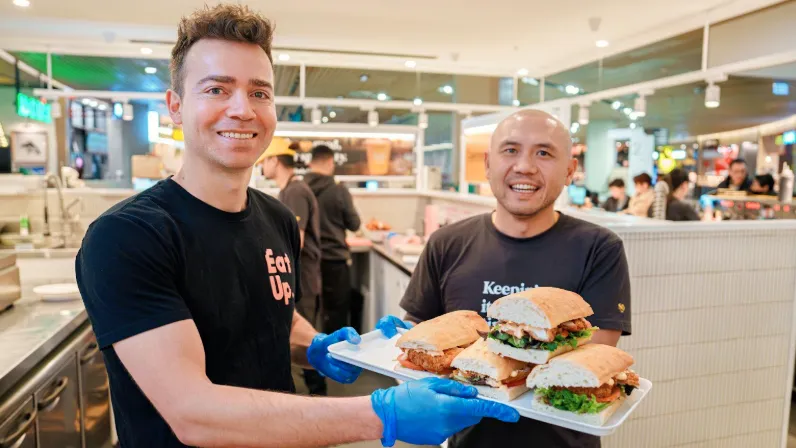
Talent drain and drought hit the QSR industry
QSR’s are suffering from higher staff turnover and are finding it harder to replace them from a shrinking pool of qualified hires.
Based on our interviews with professional recruiters, managing directors and service industry experts, talent acquisition is a persistently troublesome concern for Australian QSR’s. Why? There are slew of reasons: High competition for talent, poor management and a generational shift in working attitudes.
Some QSR’s often find themselves competing not only against each other for talent, but against other higher-paying industries who are now luring away potential service and restaurant industry hires.
“The most common industry challenge that my clients face is talent acquisition,” said Pia Manwaring, Agency Owner, Frontline Hospitality Brisbane & North QLD, a recruitment specialist for chefs and cooks for Australian QSR’s.
“With strong demands on the market place it leads us into an ever increasing competitive environment. Specifically within the Queensland, Northern Territory and Western Australia markets, our clients in the industry are struggling to find long term talent due to the mining industry boom. The salaries on offer within the mining industry simply cannot be matched, even for the unskilled which leaves a very candidate short market,” said Ms. Manwaring.
“With low unemployment in many places in Australia, the QSR segment is suffering as it tries to fill vacancies with reasonably skilled people,” adds Dr. David Solnet, Senior Lecturer and Director of Industry Partnerships and Engagement, School of Tourism, the University of Queensland, whose research interests cover the service climate and service management education.
“The last year has seen us emerge from the great financial crisis and although talent acquisition has always been a challenge, we certainly have seen it escalate over the past year and foresee it to be an ongoing issue as the economy picks up,” said Dr. Solnet.
Small business owners are also part of the talent drought problem, argues Dr. Solnet, many of whom lack skills in finding and managing the right employees.
“Small businesses in general do not fully understand the nature and score of what human resource management actually is. Managing people is complex and requires (or is greatly benefited by) specific skill, experience and training. Few small business owners will have these skills or understand that such skills are vitally important,” said Dr. Solnet.
Dr. Solnet suggests that most small business owners, who belong to older generations, might not have a firm grasp of the shifting work attitudes of service employees, who tend to belong to the younger generations.
“Generation Y – and even the next Generation Z – presents a whole new type of employee who many Generation X and Baby Boomers struggle to understand,” said Dr. Solnet.
Dominic Cain, Operations Manager at Ali Baba, a leading Australian kebab franchise, was in agreement: “Finding good staff continues to be a challenge. With many Gen Y's having a number of different careers by the age of 30, the idea of long term employees is becoming something of the past,”
“QSR's have always had a high turnover of staff however we are seeing that less people consider it a long-term career choice,” said Mr. Cain.
Dr. Solnet noted though that more recent economic developments might give QSR’s some breathing room. “Small upward movements in unemployment figures (more so with youth in some areas) might have a favourable impact on applicant pools,” he said.
Unemployment has been climbing for the past two months, rising to 5.2% in June, according to the latest data from the Australian Bureau of Statistics, up from a seasonally adjusted 5.1% in May and 4.9% in April.
Even as a short-term spike in unemployment allows QSR’s a better chance to re-staff, the dizzying rate of staff turnover still poses a significant risk to businesses. Just ask Chatime, which cites high staff turnover as a threatening factor to service quality.
Chatime customers do not care if staff quit left and right; they will still expect the same quality of service, according to Charlley Zhao, Managing Director of Chatime, the global bubble tea franchise which has 43 stores in Australia.
“At Chatime, it is critical that we manage the expected levels of service quality verses speed of service to ensure we provide a superior customer experience. When customers are not satisfied with the service, they are not likely to purchase again,” said Mr. Zhao.
“They are also quick to communicate any unfavorable service experiences via word of mouth and social media channels which can further lead to a decrease in potential sales,” he adds.
Chatime addresses high staff turnover with an increased vigor in training. “At Chatime, we ensure every staff is put through at least 4-6 weeks training to ensure they provide quality service that meets our minimum standard,” said Mr. Zhao.
Despite its coping strategy, Chatime is bracing for an even tighter, more costly hiring market.
“The challenges of the last 12 months remain and in fact could even be getting worse, On top of maintaining rigorous training and security qualified service staff, the cost of labour has increased in the past 12 months,” said Mr. Zhao. “It is getting harder to find full time staff in the service industry field.”

























